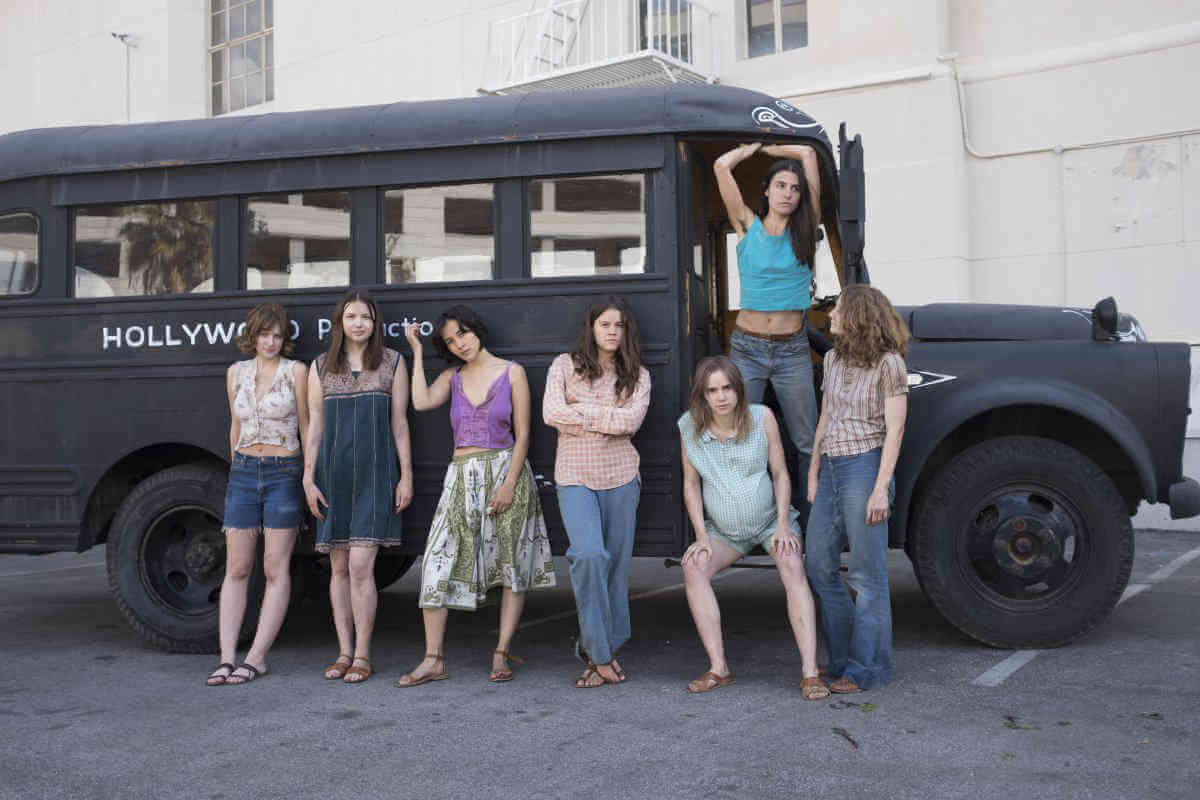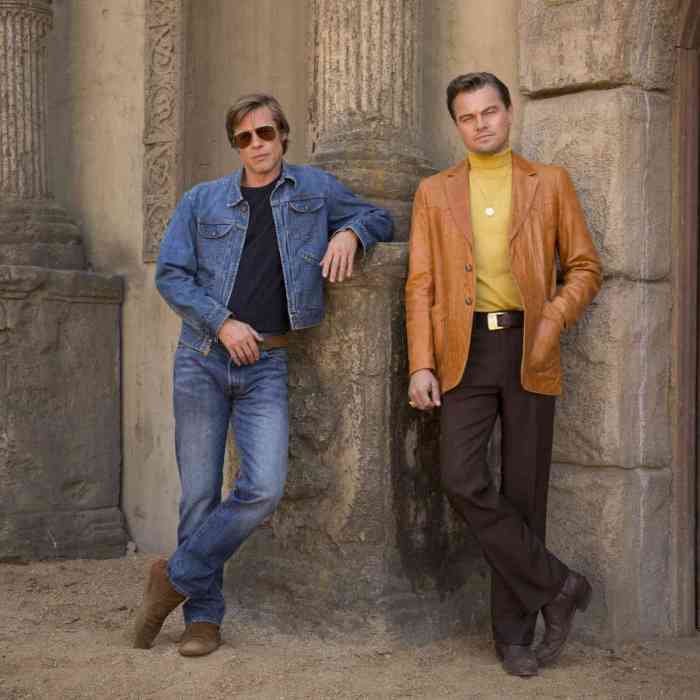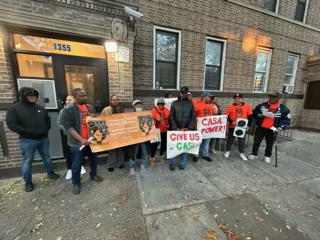For a film about the Manson family, the most surprising thing about Mary Harron’s “Charlie Says” is that it’s actually pretty bland. It offers the promise of a revisionist take on a story that’s now very familiar (it’s based on Ed Sanders’ book “The Family” and, without credit, Karlene Faith’s “The Long Prison Journey of Leslie van Houten”), revolving around a feminist student’s attempt in the early ‘70s to rehabilitate three women who were brainwashed by Manson into killing for him. It devotes most of its time to Manson (Matt Smith) speaking to his followers and seeking success in the music industry, followed by the violence we all know.
“Charlie Says” cuts back and forth between the late ‘60s and early ‘70s. In the latter scenes, Leslie van Houten (Hannah Murray), Patricia Krenwinkel (Sosie Bacon), and Susan Atkins (Marianne Rendón) start off the film in an isolation cellblock. Three years into their sentences, they are still devoted to Manson and mindlessly repeat “Charlie says…” slogans. Grad student Karlene Faith (Merritt Wever) arrives at the penitentiary with books like “Our Bodies, Ourselves” and the desire to help them. Flashbacks show how they got seduced into a dangerous world. Manson hung out with Beach Boys drummer Dennis Wilson and producer Terry Melcher, harboring dreams of becoming a rock star. When they didn’t pan out, “Charlie Says” suggests this sent him off the deep end.
In most respects, “Charlie Says” avoids the “come dressed as a hippie” cosplay aspects of many films set in the ‘60s counterculture (although Matt Smith’s long hair and beard are obviously fake). It does not use wall-to-wall rock music, relying on Manson singing and playing guitar in the background instead. (The songs played in the film come from cult psychedelic bands like Love, Blue Cheer, and the 13th-Floor Elevators rather than over-used boomer staples.) Guinevere Turner’s script ably shows how concepts like LSD-fueled “ego death,” which might be positive in some contexts, were exploited by Manson to control women.
The film, however, ticks off a series of obvious points about the Manson family. It’s the second of three films about Manson to be released this year, following “The Haunting of Sharon Tate.” Quentin Tarantino’s “Once Upon a Time in Hollywood” hasn’t yet had its public premiere, but it apparently addresses Manson and the Tate/ La Bianca murders in some way. Despite their authors’ wishes, “The Family” and Vincent Bugliosi’s “Helter Skelter” (which was adapted into a made-for-TV movie) began the long process of mythologizing Manson into a demonic boogeyman with the power to commit mass murder by proxy. “Charlie Says” begins with an intertitle quoting Joan Didion’s very common sentiment that their murders marked the end of the ‘60s.
Harron’s debut film, “I Shot Andy Warhol,” showed her compassion for women who’ve been rejected by society and committed violence. “Charlie Says” doesn’t avoid the Manson family’s crimes. Tex Watson passes the knife to Leslie mid-murder and invites her to take over, with her face getting splattered with blood as she stabs Rosemary LaBianca. If “Charlie Says” feels like a particularly edgy made-for-HBO movie, it’s blunt without being exploitative. Harron uses female nudity to show how Manson objectified women while telling them this was in the interest of their own liberation. But the film’s decision to depict a sparing amount of graphic violence glosses over real-life details that would make the women look like gleeful participants, as when Krenwinkel wrote in blood on the wall.
“Charlie Says” does a good job of using visual style to differentiate between its moods. Since the Spahn ranch didn’t have electricity, the scenes there are lit by candles, giving them an infernal orange glow. Even the exteriors aren’t filled with Southern California sunshine. The jail looks properly drab. If one thinks of the ‘60s as full of DayGlo color, the film deliberately sets out to disappoint that expectation.
The release of two Netflix films about Ted Bundy this year and evergreen popularity of true crime books, TV shows, and podcasts has led to a debate about the ethics of depicting serial killers. More generally, is it dangerous to show how seductive dangerous men can be? Despite the inclusion of an interview with Sharon Tate (Grace van Dien) on TV, the film argues for the decency of murderers while barely paying lip service to their victims. Real compassion for both female killers and victims might require actually developing Tate and LaBianca as characters. “Charlie Says” is torn between a story everyone already knows and a new one about life after being branded public enemy #1. It’d be a much better film if it could devote itself to that latter story.
CHARLIE SAYS | Directed By Mary Harron | IFC Films | Opens May 10 | IFC Center, 323 Sixth Ave. at W. Third St. | ifccenter.com







